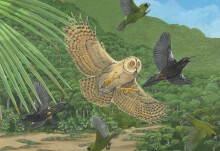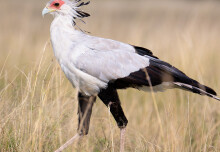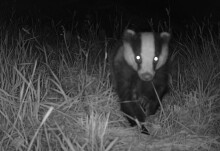

News in brief
Addressing medicine’s gender data gap and microbes in space: News from Imperial
Here’s a batch of fresh news and announcements from across Imperial.



Addressing medicine’s gender data gap and microbes in space: News from Imperial
Here’s a batch of fresh news and announcements from across Imperial.


No incentive for older birds to make new friends
Like people, birds have fewer friends as they age, but the reasons why are unclear. New research suggests they may just have no drive to.


Hampstead Heath ponds where dogs swim contaminated with pesticides
Most dog owners didn’t know that flea and tick treatments are dangerous to aquatic life, suggesting more awareness could ease the problem.
 1
1


True global impact of human-driven bird extinctions far greater than expected
The ongoing loss of bird species is likely to have severe knock-on effects as their unique roles in ecosystems are not fulfilled, shows a new study.


Protecting 0.7% of land could help save 1/3 of unique & endangered species
Conservation efforts directed towards just 0.7% of the world’s land mass could help protect 1/3 of the world’s threatened and unique tetrapod species.


Farmer-led badger vaccination could revolutionise mission to tackle bovine TB
A new study highlights the need for government support for large-scale badger vaccination to eradicate bovine tuberculosis.
 2
2


Animal research and AI/BMI health predictors: News from Imperial
Here’s a batch of fresh news and announcements from across Imperial.


Turning off inflammatory protein extends healthy lifespan in mice
Scientists have discovered that ‘turning off’ a protein called IL-11 can significantly increase the healthy lifespan of mice by almost 25%.


Research on environmental risks of pet parasiticides receives President’s Award
An interdisciplinary research group showing the environmental risks of pet parasiticides has received Imperial College London's President's Award.


Imperial endorses Culture of Care plan to guide next 10 years of animal research
A new roadmap aims to help Imperial maintain its sector-leading care and excellence in animal research and ensure it remains an exemplar for others.